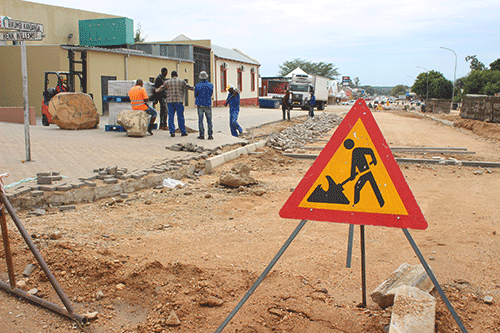ROAD Fund Administration CEO Ali Ipinge stated that structurally, the roads sector is going through a major transition caused by technology and innovation in the motor industry. He noted that the emergence of electric vehicles, coupled with the introduction of fuel-efficient vehicles, may result in good news for consumers. But for road funders like the Road Fund Administration (RFA), it may cause major disruptions in generating revenue.
“This poses a huge future sustainability challenge as in spite of these positive innovations, roads will still need adequate funding and maintenance,” Ipinge stressed. The RFA’s revenue is collected from a number of road user charges (RUCs), which constitute fuel levies, annual motor-vehicle licence and registration fees, cross-border charges (CBCs), mass distance charges (MDCs), abnormal load fees, cross-border road transport permits as well as domestic road carrier permits.
RUCs collected showed 54.4% came from fuel levies for the reporting period, 33.3% from annual motor-vehicle licence and registration fees, 5% from cross-border charges, 0.5% from abnormal load fees and road carrier permits, and 6.8% from mass distance charges (local and foreign). This was covered in the RFA’s 2021 integrated annual report recently tabled in parliament.
The completion of the road maintenance costing study gave excellent baseline data on the unit costs of road maintenance projects and cost drivers. “In essence, year-on-year revenue declined mildly due to reduced opportunities to collect revenue as Covid-19 restrictions on movement were enforced. During the initial stages of the pandemic, which affected this reporting period, we were forced to trim our budget by at least N$182 million,” explained Ipinge. By extension, this revision had an impact on what could be invested in road projects. Despite this, the RFA generated N$2.2 billion and invested N$1.7 billion towards the management and maintenance of national roads infrastructure.
Subsequently, a surplus of N$87 million was achieved during the reporting period. The 2021 financial year is the second year in RFA’s integrated strategic business plan (ISBP) 2019 – 2024. In these challenging times, Ipinge said priority was to balance the competing needs of effectively managing Namibia’s RUCs with strategic goals that shape the future of the organisation.
“In essence, a key deliverable in our resilience to Covid-19 was embedding anti-fragility across the organisation to increase our ability to manage and thrive through major disruptions. Holistically, the road sector remained resolute in its quest to ensure socio-economic sustainability for the future. This is premised on the notion that efficient roads infrastructure is a critical enabler of economic recovery, post Covid-19,” he stated.


